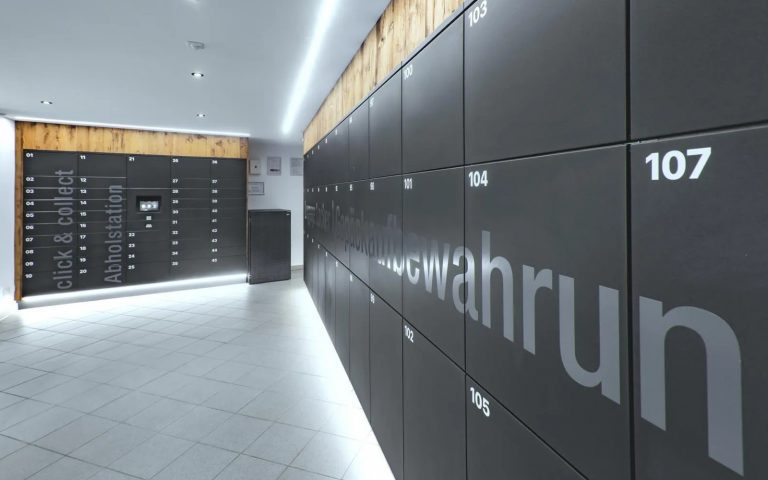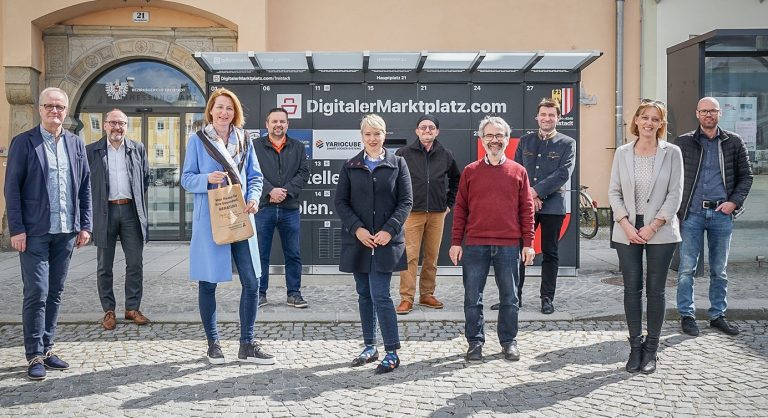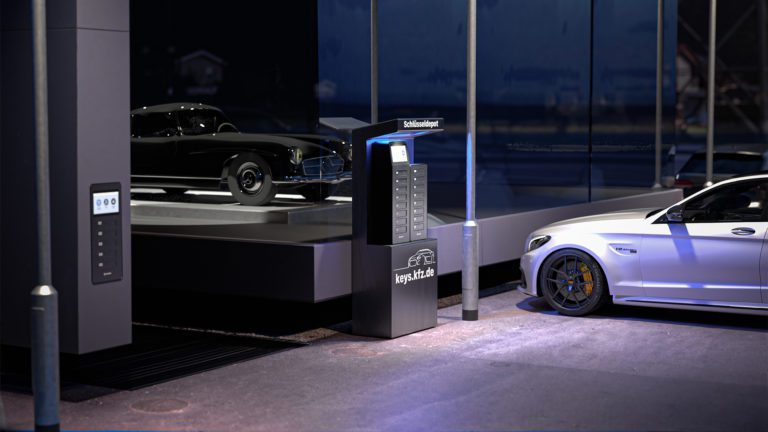Lead project to establish the Physical Internet starts in Austria.
Over the next four years, applications will be tested in various industries. The project with Fraunhofer Austria as consortium leader started on Friday with a joint kick-off of the 17 project partners.

The growing number of goods being transported around the world and their handling, which is usually resource-intensive, presents the environment and society with ever-increasing challenges, which are further exacerbated by climate change. These must be met quickly and intelligently. One possibility for this is co-operative logistics and, subsequently, the Physical Internet. This is probably currently the most ambitious concept for efficiency and sustainability in transport logistics. It stands for a far-reaching reorganisation of freight transport and logistics. The 17 partners in the lead project "PhysICAL" - Physical Internet through Cooperative Austrian Logistics - now want to lay the necessary foundations for Austria to implement the Physical Internet across the country. Among other things, possible applications are being developed in four different sectors. This will demonstrate that the Physical Internet brings economic benefits to the Austrian transport industry and ecological and socio-economic benefits to society. The project is funded by the Federal Ministry for Climate Protection as part of the RTI programme Mobility of the Future.
"I am pleased that 17 Austrian partners from the transport industry and logistics have come together here to test the Physical Internet in practice on four concrete pilots over the next four years. The Physical Internet promises not only to improve efficiency in logistics by up to 30 %, but also to reduce congestion, emissions and energy consumption by at least 30 % at the same time. Therefore, we have high expectations here in terms of insights into the design of sustainable freight mobility," says Innovation Minister Leonore Gewessler.
While today goods are transported over long distances by individual transport service providers, in the future there will be fragmented transports that are independent of providers and modes. Intelligent containers, for example, will automatically find the most efficient route through transport networks. "Just as an e-mail automatically makes its way through the internet from the sender to the recipient via several intermediate stations, in future goods will independently make their way through transport networks," explains project leader Sandra Stein from the consortium leader Fraunhofer Austria. "In doing so, they will make use of road, rail and waterway, but also different storage locations, depending on their needs, and always choose the most efficient route to the recipient," she adds.
However, development work is necessary before it can be used nationwide, such as the creation of open information systems like platforms or the further development of intelligent transport units. An important basis is also a cooperative approach by all stakeholders, which must lead to a complete rethink by all involved.
These are precisely the steps planned by the partners in the PhysICAL lead project for the next four years. Cooperatively used transport containers are being developed for the timber industry, for example. These are to be used in Murtal and Lungau, where smart wood logistics will make it possible to shift about 30,000 of the current 100,000 tonnes of transport volume from road to rail. A smart container for parcel shipments is also the focus of the pilot project in Graz. Instead of a multitude of parcel service providers, a neutral fleet will deliver parcels in smart boxes to central locations there in the future in order to reduce traffic in inner-city areas and increase the quality of life.
Digital platforms, on the other hand, are the focus of the other two pilot projects: the first real trading house in the virtual world will enable manufacturing SMEs to participate in eCommerce. By jointly handling storage, transport and IT solutions, successful sales via eCommerce will be independent of company size. The fourth pilot envisages the development of an open transport management platform. This should simplify the booking of an intermodal transport so much that it can be carried out with just a few clicks.
The "PhysICAL" project is funded by the Federal Ministry for Climate Protection as part of the RTI programme Mobility of the Future and is managed by the Austrian Research Promotion Agency FFG. Project partners are the AIT Austrian Institute of Technology, Prime Mobility & Consulting GmbH, doppler E. Doppler & Co GmbH, 4PL Intermodal GmbH, Schrack Technik GmbH, Steiermarkbahn Transport und Logistik GmbH, Wiener Lokalbahn Cargo GmbH, A1 digital International GmbH, bitsfabrik GmbH, Cargo-Center-Graz Betriebsgesellschaft mbH & Co. KG, niceshops GmbH, Pro Danube Management GmbH, Project-S Global.Web.Shop GmbH & Co KG, Graz University of Technology, Variocube GmbH, Stranzinger Logistik Service GmbH.



